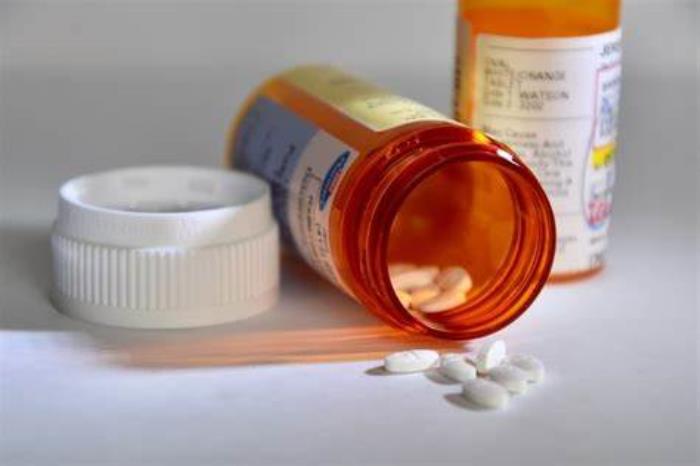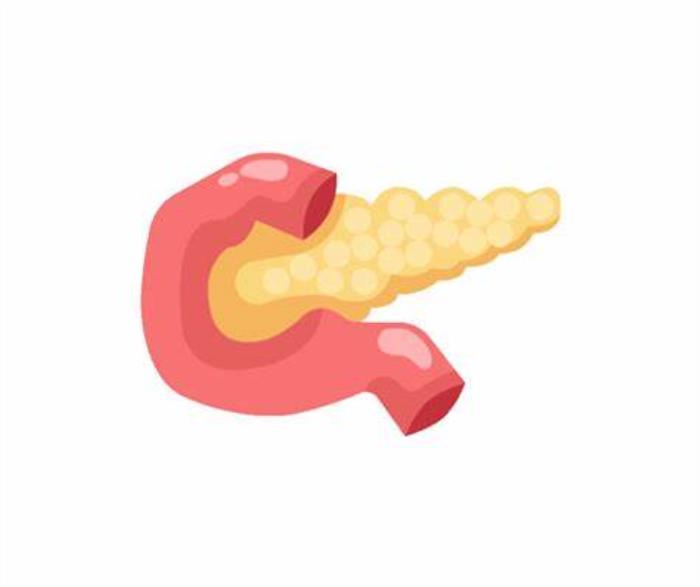A pancreas transplant is a surgical procedure that involves replacing a diseased pancreas with a healthy donor pancreas. This procedure is primarily indicated for patients with type 1 diabetes, especially those with severe complications or those who are insulin-dependent. The goal of a pancreas transplant is to restore normal insulin production and eliminate the need for insulin therapy, thereby improving the patient's quality of life. Understanding the recovery process and necessary lifestyle changes post-transplant is crucial for achieving optimal outcomes.
Medical disclaimer: This content is for general awareness and does not replace a doctor’s consultation. For diagnosis or treatment decisions, consult a qualified specialist.
Understanding the Recovery Timeline
The recovery timeline after a pancreas transplant can vary significantly among individuals. Typically, the initial recovery phase lasts about two weeks in the hospital, where patients are monitored for any complications. Following discharge, patients can expect to continue their recovery at home, with a gradual return to normal activities over the next few months. Regular follow-up appointments are essential during this period to monitor the function of the transplanted organ and adjust medications as necessary.
Immediate Post-Transplant Care
Immediately after the transplant, patients will be closely monitored for signs of rejection or infection. The medical team will manage pain and ensure that the patient is stable. Patients may require intravenous fluids and medications to support their recovery. It is crucial to adhere to the prescribed medication regimen, which often includes immunosuppressants to prevent the body from rejecting the new pancreas. Understanding the importance of this phase is vital for a successful recovery.

Long-Term Medication Management
Long-term success after a pancreas transplant relies heavily on medication adherence. Patients will be prescribed a regimen that includes immunosuppressants to prevent organ rejection, along with other medications to manage blood sugar levels and overall health. Regular blood tests will be necessary to monitor drug levels and kidney function, as these medications can have side effects. Patients must be educated on the importance of taking medications as directed and recognizing potential side effects.
Monitoring Blood Sugar Levels
Even after a successful pancreas transplant, monitoring blood sugar levels remains essential. While the goal is to achieve normal insulin production, fluctuations can occur, particularly in the early months post-transplant. Patients should learn how to use a glucometer and understand the signs of hypoglycemia and hyperglycemia. Maintaining a log of blood sugar readings can be beneficial for discussions with healthcare providers during follow-up visits.
Importance of Regular Follow-Up Appointments
Regular follow-up appointments are critical for monitoring the health of the transplanted pancreas and the patient’s overall well-being. During these visits, healthcare providers will assess kidney function, blood glucose levels, and the effectiveness of immunosuppressive therapy. Patients should be encouraged to ask questions and report any unusual symptoms. These appointments serve as an opportunity to adjust treatment plans and ensure that the patient remains on track for a successful recovery.
Adopting a Healthy Diet
Diet plays a pivotal role in recovery after a pancreas transplant. Patients are encouraged to adopt a balanced diet rich in fruits, vegetables, whole grains, and lean proteins. It is important to limit the intake of processed foods, sugar, and saturated fats to maintain healthy blood sugar levels and overall health. Consulting with a dietitian can provide personalized recommendations tailored to the individual’s nutritional needs and preferences.
Physical Activity and Exercise Recommendations
Incorporating physical activity into daily routines is essential for recovery and overall health post-transplant. Patients are encouraged to engage in light to moderate exercise, such as walking or swimming, as tolerated. Exercise helps improve cardiovascular health, maintain a healthy weight, and enhance mood. It is important for patients to consult their healthcare provider before starting any new exercise regimen to ensure safety and appropriateness based on their recovery stage.
Managing Stress and Mental Health
Post-transplant recovery can be emotionally challenging. It is important to address mental health and stress management as part of the recovery process. Patients may experience anxiety, depression, or feelings of isolation. Engaging in stress-reducing activities such as yoga, meditation, or counseling can be beneficial. Support groups for transplant recipients can provide a sense of community and understanding, helping patients navigate their emotional journey.
Recognizing Signs of Rejection
Understanding the signs of organ rejection is crucial for timely intervention. Symptoms may include fever, abdominal pain, jaundice, or changes in blood sugar levels. Patients should be educated on these signs and encouraged to contact their healthcare provider immediately if they experience any concerning symptoms. Early detection of rejection can significantly improve outcomes and preserve the function of the transplanted pancreas.
Potential Complications and Their Management
Despite the best efforts, complications can arise following a pancreas transplant. These may include infection, blood clots, or issues related to immunosuppressive therapy. Patients should be aware of the potential risks and the importance of seeking prompt medical attention if they experience symptoms such as fever, swelling, or unusual bruising. Regular monitoring and proactive management can help mitigate these risks.
Importance of Hydration
Staying adequately hydrated is essential for overall health, especially after a pancreas transplant. Proper hydration supports kidney function and helps maintain optimal blood sugar levels. Patients should be encouraged to drink plenty of fluids, particularly water, and to limit caffeine and sugary drinks. Understanding the importance of hydration can empower patients to make better choices in their daily lives.
Social and Lifestyle Adjustments
Life after a pancreas transplant may require various social and lifestyle adjustments. Patients may need to modify their social activities, particularly in the early recovery phase, to avoid exposure to infections. It is important to communicate with family and friends about the transplant and the necessary precautions. Building a supportive network can help patients navigate their new lifestyle and maintain connections with loved ones.
Travel Considerations After Transplant
Traveling post-transplant can be enjoyable but requires careful planning. Patients should consult their healthcare provider before making travel arrangements. It is essential to carry sufficient medications, maintain a healthy diet, and stay hydrated while traveling. Additionally, patients should be aware of the healthcare facilities available at their destination in case of any medical emergencies. Understanding these considerations can help ensure a safe and enjoyable travel experience.

Support Systems and Resources
Establishing a strong support system is vital for patients undergoing recovery after a pancreas transplant. Family, friends, and healthcare providers play a crucial role in providing emotional and practical support. Additionally, various organizations and online communities offer resources, information, and peer support for transplant recipients. Engaging with these resources can provide valuable insights and encouragement throughout the recovery journey.
Financial Considerations Post-Transplant
The financial implications of a pancreas transplant can be significant. Patients should be informed about the costs associated with the procedure, ongoing medications, and follow-up care. It is advisable to explore available health insurance options and financial assistance programs. Understanding the financial aspects can help patients plan accordingly and alleviate some of the stress associated with post-transplant life.
Long-Term Health Monitoring
Long-term health monitoring is essential for transplant recipients to ensure the ongoing health of the transplanted pancreas and overall well-being. Patients should participate in regular check-ups, which may include laboratory tests, imaging studies, and assessments of kidney function. Monitoring helps detect any issues early and allows for timely interventions, thereby enhancing the long-term success of the transplant.
Empowerment Through Education
Education is a powerful tool for patients recovering from a pancreas transplant. Understanding the procedure, recovery process, and necessary lifestyle changes can empower patients to take an active role in their health. Educational resources, including workshops, literature, and support groups, can provide valuable information and foster a sense of community among transplant recipients.
Best Pancreas Transplant in India
The Best Pancreas Transplant in India provides a life-changing solution for patients with severe diabetes or pancreatic dysfunction, restoring insulin production and improving overall health.
Best Pancreas Transplant Hospitals in India
The Best Pancreas Transplant Hospitals in India feature world-class infrastructure and skilled transplant teams, offering high success rates and comprehensive post-operative care.
Pancreas Transplant Cost in India
The Pancreas Transplant Cost in India is affordable, ensuring access to cutting-edge treatments with transparent pricing and tailored care plans for international and domestic patients.
Best Pancreas Transplant Surgeons in India
The Best Pancreas Transplant Surgeons in India are renowned for their expertise and precision, delivering successful outcomes through innovative surgical techniques and personalized patient care.
FAQs
What is the average recovery time after a pancreas transplant?
The average recovery time can vary, but most patients spend about two weeks in the hospital, followed by several months of outpatient care and monitoring.
How often will I need to see my doctor after the transplant?
Patients typically need to see their doctor regularly in the first year post-transplant, with the frequency gradually decreasing as they stabilize. Follow-up appointments are crucial for monitoring the health of the transplanted pancreas.
What dietary changes should I expect after a pancreas transplant?
Patients are encouraged to adopt a balanced diet rich in whole foods, while limiting processed foods and sugars. Consulting with a dietitian can provide personalized dietary guidance.
Can I resume physical activities after the transplant?
Yes, patients can gradually resume physical activities, but it is important to consult with a healthcare provider to determine appropriate levels of activity based on individual recovery progress.
What are the signs of organ rejection I should be aware of?
Signs of organ rejection may include fever, abdominal pain, jaundice, and changes in blood sugar levels. Prompt communication with healthcare providers is essential if any of these symptoms occur.